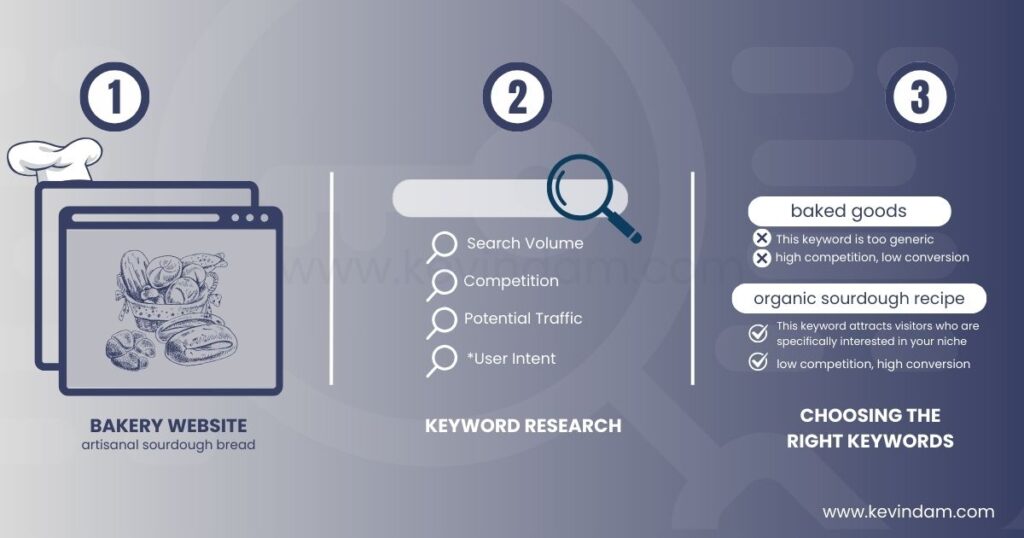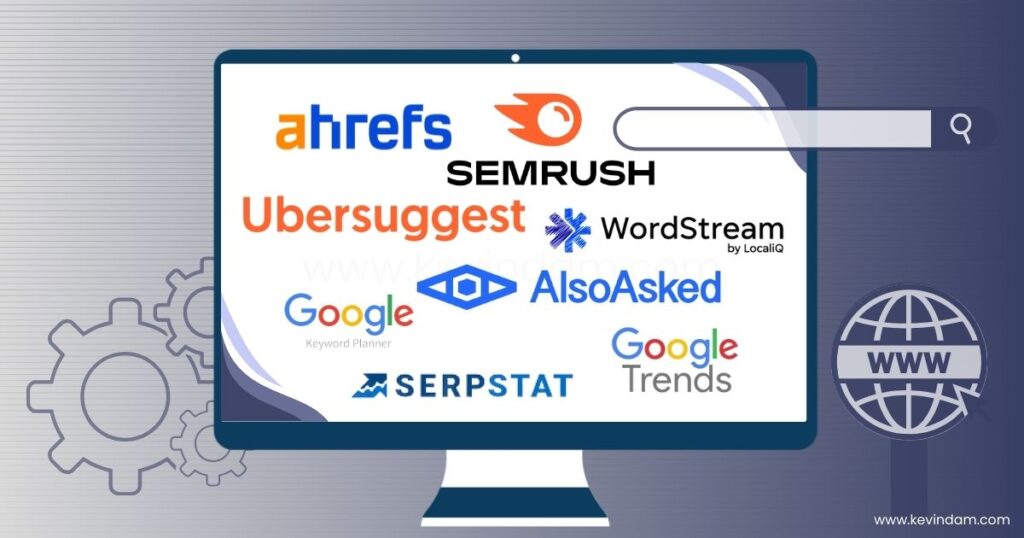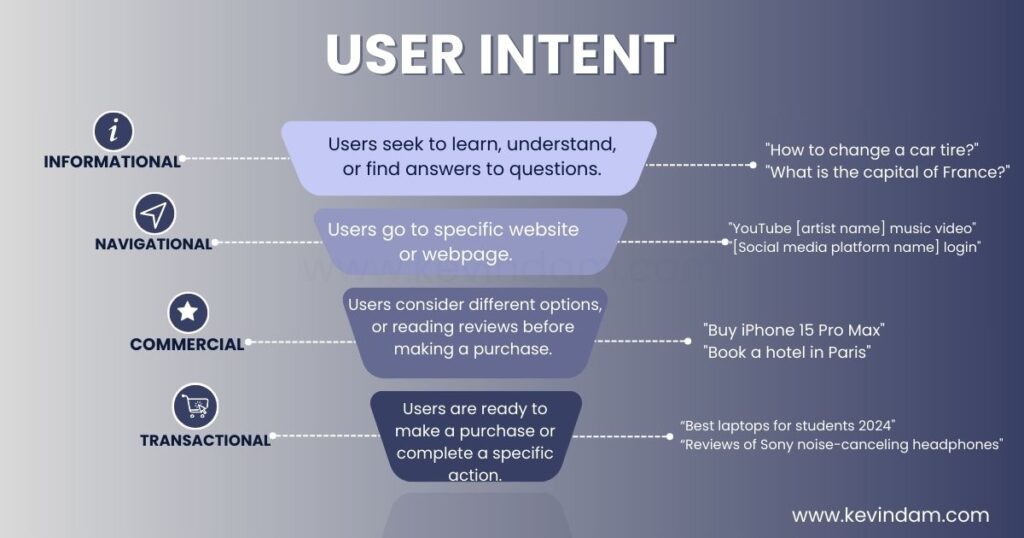
Last Updated August 14, 2024
The Ultimate Guide to Keyword Research: Strategies and Tools for SEO
Have you ever wondered what people type into search engines to find information online? That’s where keyword research comes in!
This guide will briefly summarise everything you need to know about keyword research and why it’s important. Then, we’ll explore smart ways to discover keywords people are searching for, introduce some handy tools to simplify keyword research and discuss how to analyse competitors’ keywords, providing you with a strategic advantage online.
By the end of this content, you’ll be equipped to find the perfect keywords to attract the right audience to your website or content!
What is Keyword Research?
Keyword research involves pinpointing specific words and phrases used in search engines. It also acts as a roadmap for SEO, guiding businesses to create sought-after content and drive increased website traffic.
Websites can be improved or optimised to use the words people search for, which helps the website appear higher in search results, making it more visible to people searching online.
Discovering the Best Keywords
Understanding your audience is crucial for identifying the best keywords. It’s like envisioning what someone might type to find your business or website.
After all, you want them to find what they’re looking for when they search. To truly comprehend their behaviour and preferences, you must put yourself in their shoes and vividly visualise what they may be typing into a search engine.
When you use keyword research tools, you’re tapping into real data from search engines. This allows you to explore essential details such as search volumes, competition levels, and potential traffic for different keywords related to your niche. By gaining access to this information, you can craft a more targeted strategy and align your focus on high-value keywords relevant to your business objectives.
This approach is more than just focusing on generic terms with high search volumes. It’s also about discovering keywords that can potentially drive relevant traffic to your website. Think of it like a map—your goal is visibility and reaching the right destination, which is your website or business.
For instance, let’s assume you run a bakery specialising in artisanal sourdough bread. Instead of targeting broad keywords like “bread” or “baked goods,” you might discover that “handcrafted sourdough bread” or “organic sourdough bakery” is more fitting for attracting visitors who are specifically interested in what your business offers.
In essence, utilising keyword research tools provides the groundwork for placing yourself in the shoes of your potential customers—understanding their needs and intentions behind their online searches.
The ability to decipher the intentions and patterns of potential customers during their online explorations is instrumental in honing an effective SEO strategy. Let’s focus on leveraging powerful keyword research tools to elevate your SEO game.
Keyword Research Tools
Regarding keyword research, having the right tools can make all the difference.
Several tools that are widely used are Ahrefs, SEMrush, Moz Keyword Explorer, and Google’s Keyword Planner. These tools are invaluable resources for analysing search volume competition levels and identifying potential keywords to target. Using tools provides valuable insights into user search behaviour and can help refine your keyword strategy to align with your SEO goals.
Let’s go through each of them:
Ahrefs – based on our experience, this tool provides comprehensive data on organic search traffic, backlink profiles, and top-performing content for specific keywords. Ahrefs helps us understand what resonates with users and identify lucrative keyword opportunities within our niche.
SEMrush, on the other hand, excels in analysing keywords that our competition already ranks for and provides valuable data on organic search traffic, visitors, and traffic costs. Its phrase match report is especially useful for finding long-tail variations of keywords, which can be a goldmine for driving targeted traffic to our website.
Moz Keyword Explorer – This tool offers an intuitive interface for identifying new keyword opportunities and determining how difficult it will be to rank for specific keywords. Its proprietary metric, Keyword Difficulty (KD), evaluates the competitiveness of a keyword on a scale from 0 to 100, helping us prioritise our target keywords effectively.
Google’s Keyword Planner – provides essential data on search volume and competition within Google’s search network. This tool allows us to gain insights into the performance of keywords directly on the world’s most popular search engine, ensuring that our keyword strategy is finely tuned to resonate with a broad audience.
By leveraging these powerful keyword research tools combined with our expertise, we can make data-driven decisions that optimise our SEO efforts and drive meaningful results for our website.
With a strong understanding of powerful keyword research tools, let’s focus on the significance of comprehensive keyword analysis and why it plays a pivotal role in achieving SEO success.
Comprehensive Keyword Analysis is Important
If you want to understand the language spoken by your target audience, you need to have a deep understanding of keyword analysis. Here are some of the reasons why comprehensive keyword analysis matters:
- By conducting a comprehensive keyword analysis, you can listen to your audience’s needs and create content that caters to those needs effectively.
It’s like eavesdropping on a conversation to know what people are interested in and what they’re looking for. - Comprehensive keyword analysis helps you map your industry’s search landscape. Imagine you’re creating a map. You need to know where to go, so you look at all the different paths and routes available.
Comprehensive keyword analysis provides invaluable information about which keywords are commonly used, which ones people are searching for the most, and which are less competitive but could still bring invaluable traffic. - Understanding these insights equips you to create targeted content that addresses specific user intents and needs. This connection with your audience is invaluable – it lets them know that you understand them and that your content is valuable to them.
For instance, think of comprehensive keyword analysis as “cracking the code” – it enables you to decode the language used by your potential customers, allowing you to tailor your content strategy accordingly.
It’s like having a secret key that unlocks the door to understanding your audience’s wants.
But why does this matter?
Well, you can also think about it in terms of search engines – they want to provide users with the best and most relevant results for their queries. When you align your content with what users are searching for, search engines are more likely to recognise its value and rank it higher in search results.
Influencer Identification: Power Boost Your Market Research
Identifying industry influencers and thought leaders can be a game-changer when conducting keyword research. These influencers are crucial in shaping and leading conversations within their respective niches.
By understanding their impact, you are not only gaining insights into trending topics and emerging keywords but leveraging first-hand market research data to inform your SEO strategy.
Influencers often have a dedicated audience that looks to them for guidance and information. This means that by engaging with influencers, you can tap into an existing community of individuals interested in your niche. Consequently, you gain access to valuable insights and discussions happening within your industry, allowing you to stay ahead of keyword trends and ensure that your content remains relevant and aligned with current industry conversations.
Moreover, influencers often create content that naturally incorporates the use of relevant keywords. Their posts, videos, or podcasts can provide a wealth of insight into which keywords are resonating with the audience and gaining traction. By observing how influencers use language and vocabulary within their content, you can identify keywords that are likely to perform well within your own SEO strategy.
When engaging with influencers for market research purposes, it’s important to approach these relationships with authenticity and respect. Avoid treating influencers solely as a resource for keyword data. Instead, seek to build genuine connexions and collaborations that benefit both parties. This approach not only fosters trust and goodwill but also opens the door to future opportunities for collaboration and knowledge-sharing.
Consider reaching out to influencers for interviews or guest contributions on your platforms. In doing so, you can gather firsthand insights into their use of keywords, topics that resonate with their audience, and emerging trends within your industry.
Additionally, featuring influencer-contributed content on your website or social media channels can enhance your credibility and visibility while providing valuable insights derived from the influencer’s expertise.
By incorporating influencer identification into your keyword research strategy, you elevate the depth and relevance of your SEO efforts through direct access to real-time industry intelligence and organic keyword usage.
Probing Your Competitor’s Strategy
Another strategy for keyword research is conducting a competitor analysis to uncover competitive insights that can shape your keyword optimisation plan.
Conducting a competitor analysis is like being a detective. It involves uncovering the keywords for which your competitors already rank in search engines. By doing so, you gain valuable insights into your industry’s landscape, identify keyword opportunities, pinpoint gaps in your content strategy, and identify areas where you can outperform your competition.
When undertaking this pivotal strategy, it’s crucial to approach it systematically. The goal is not just to see what keywords your competitors are targeting but to understand why those keywords are successful for them. You want to uncover the ‘how’ and ‘why’ behind their rankings and subsequently leverage this understanding to top their achievements.
For instance, let’s say you’re a pet grooming business eyeing the local market. Through competitor analysis, you discover that a rival grooming service consistently ranks for “best pet grooming service in [your city].” This insight opens up a new keyword opportunity to pursue and optimise your own website content accordingly.
Strategically, studying your competitors’ top-performing keywords isn’t just about emulation; it’s about innovation, too. By identifying gaps in their strategy or areas with room for improvement, you can tailor your approach to surpass them.
Tools for Competitor Analysis
Now, let’s talk about tools that can help with this detective work:
| Tools | Description |
| SEMrush | Provides comprehensive data on competitors’ organic search performance, including their top keywords and rankings. |
| Ahrefs | An extensive backlink database and competitive research tools that reveal the keywords driving traffic to your competitors’ websites. |
| SpyFu | Specialises in keyword research and backlink analysis, uncovers your competitors’ top-performing keywords and ad spend. |
Tools like these provide vital information for formulating an effective keyword strategy by helping you recognise both your competitors’ strengths and their weaknesses.
Furthermore, with the right data in hand, you’ll be better equipped to position yourself ahead of the curve.
Competitor analysis isn’t just about seeing where you stand compared to others. It’s about using these insights as a springboard for your own growth. In the world of SEO, understanding what works for others often paves the way for finding what works best for you.
Website Optimisation via Keyword Selection
Choosing and using the right keywords can significantly affect how well your website appears in search engine results. Once you’ve done your homework and found the most relevant keywords for your website, it’s time to strategically weave them into your content and on-page elements. So, where do we start?
The first place to focus is your meta tags. These are bits of code at the top of your web page that tell search engines what your page is about. The title tag is the most important one—it’s what shows up as the clickable link in search results.
It’s not just about stuffing keywords in there, though. You must craft a compelling title that includes your main keyword and entices searchers to click on it.
Remember: Our goal is not just to rank well in search results but also to make people want to click on our link when they see it.
Next up are the headers (H1, H2, etc.) on your webpage. These give structure to your content and help search engines understand each section’s relevance, making including targeted keywords here essential.
Content optimisation is equally important, directly impacting user experience and search engine visibility. We need to naturally incorporate our keywords within the body of our content while ensuring it reads well and remains relevant to our audience.
For instance, if you’re writing an article about “SEO best practices,” you’ll want to include related phrases like “SEO tips,” “search engine optimisation techniques,” or “SEO strategies” throughout your content.
However, be careful not to overdo it with excessive keyword stuffing—this will not only turn off readers but can also result in penalties from search engines. Striking a balance between informative, user-friendly content and strategic keyword usage is key here.
By judiciously integrating our carefully researched keywords into our meta tags, headers, and content, we’re sending strong signals to search engines about the relevance of our website for specific search queries. This could boost our organic visibility and drive valuable traffic to our website.
Choosing the Correct Keywords for Your Content
Now that we’ve covered the strategic placement of keywords to enhance website visibility, let’s move on to understanding how to choose the correct keywords to maximise the impact of our content.
Selecting the right keywords is not just about choosing words related to your content. It’s about understanding what your audience searches for when they type into a search engine. In other words, it’s about comprehending your audience’s intent behind their searches. Understanding their intent is like having a map to guide you through the endless jungle of keyword possibilities.
To begin with, let’s take a closer look at the three main types of search intent:
- Informational intent involves seeking information, such as “how-to” guides or research papers. On the other hand,
- Navigational refers to a specific website or page search.
- Transactional intent indicates that the user is ready to make a purchase or engage with a website in some way.
Each keyword you choose should cater to one of these intents to ensure you deliver the correct content at the right moment. By doing so, you’re not just driving traffic; you’re driving relevant traffic that is more likely to engage with your content and convert it into customers.
Addressing user needs effectively and providing value through your content is important.
Neglecting this step and selecting keywords haphazardly might attract visitors who are not interested in what you have to offer. This can lead to high bounce rates and poor engagement metrics, ultimately affecting your search engine rankings.
For instance, if you run an e-commerce site selling organic skincare products, targeting a keyword like “best organic moisturiser for dry skin” aligns with transactional intent – users searching for this phrase are likely ready to make a purchase.
On the other hand, crafting content targeting “how to determine your skin type” caters more towards informational intent.
Aligning your keyword strategy with search intent helps drive engagement and conversions by ensuring that you’re providing valuable content at each stage of the buyer’s journey.
Conclusion
Keyword research is the backbone of a successful SEO strategy, guiding you to create content that aligns with what your audience is searching for. Identifying and using the right keywords can increase your website’s visibility, attract the right traffic, and improve user engagement. Remember, the goal is to understand your audience’s intent and needs so you can provide valuable content that meets their expectations. With the strategies and tools outlined in this guide, you’re well-equipped to find the perfect keywords and drive meaningful results for your website or business.





